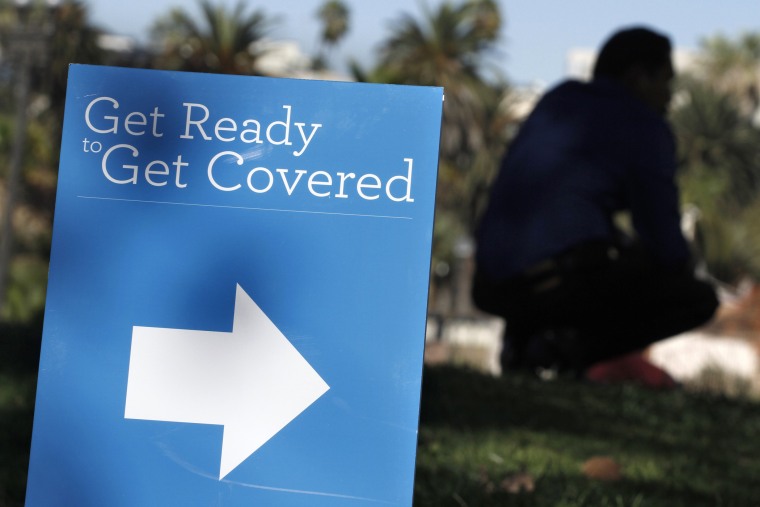The
latest report from the Kaiser Family Foundation offers plenty of good news for those hoping to see the American health care system succeed. For example, a combined 74% of consumers who purchased coverage through an exchange consider their coverage either "good" or "excellent," which is up a couple of points from last year.
This is exactly the kind of numbers proponents of the Affordable Care Act hoped to see. For all the predictions that consumers would avoid the exchanges and hate their ACA-backed coverage, we now see largely the opposite.
But the same survey found that Republicans, many of whom like the coverage they've received through "Obamacare," continue to hate the law anyway.
Mother Jones' Kevin Drum thinks this is "
crazy" and he raises a fair point.
This isn't a general survey of all Americans. It's a survey specifically of people who don't have group coverage. Most of them (probably more than two-thirds) have actually purchased Obamacare plans and therefore have personal experience with them, but favorability is nonetheless still driven mostly by party ID. You can buy an ACA plan on the marketplace, get a subsidy, and be happy with your plan -- but if you're a Republican you still overwhelmingly hate Obamacare by 74-25 percent. Folks, that is hardcore.
Agreed. For years, we've seen polls showing Americans expressing general support for the provision that make up the ACA, even if they claim not to like the ACA itself, but this is just a little worse. We're looking at a group of folks who received coverage through the system, like the coverage they received, but still reflexively oppose the law that gave them the coverage they like.
Cognitive dissonance notwithstanding, the fact that these consumers actually like their coverage is no small detail. Over at the
Washington Post, Paul Waldman raised
a good point yesterday:
The political implications of these results are clear: We can now add people who got their insurance through the exchanges as another constituency, in addition to those on Medicare and those who have employer-based coverage, whose coverage you cannot mess with unless you want to reap a huge backlash.
With the King v. Burwell case pending at the Supreme Court, this matters a great deal. Republican policymakers may take some solace in the fact that the law -- or at least the branding of the law -- is unpopular, but Republican justices may kill coverage to millions of people next month, including GOP consumers who like what they have.
A political nightmare awaits.
